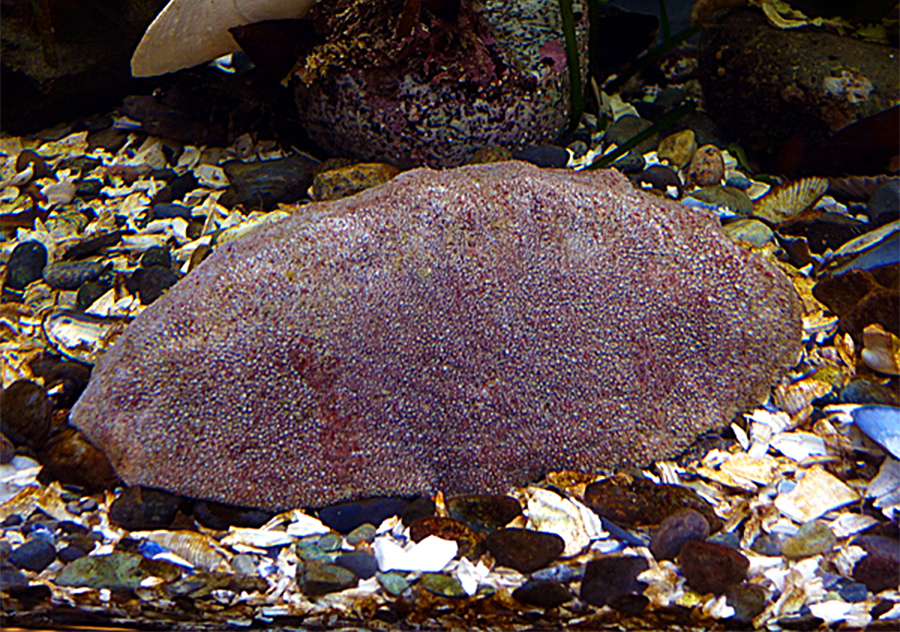
by David Young | Aug 16, 2024 | Molluscs
Authors: Adam Kitzler and Niko Kruzel Common Names: Gumboot chiton, giant Pacific chiton, giant red chiton, the wandering meatloaf Scientific Name: Cryptochiton stelleri Size Range: Up to 13 inches (33cm) in length Identifying features: Gumboot chitons have an...


